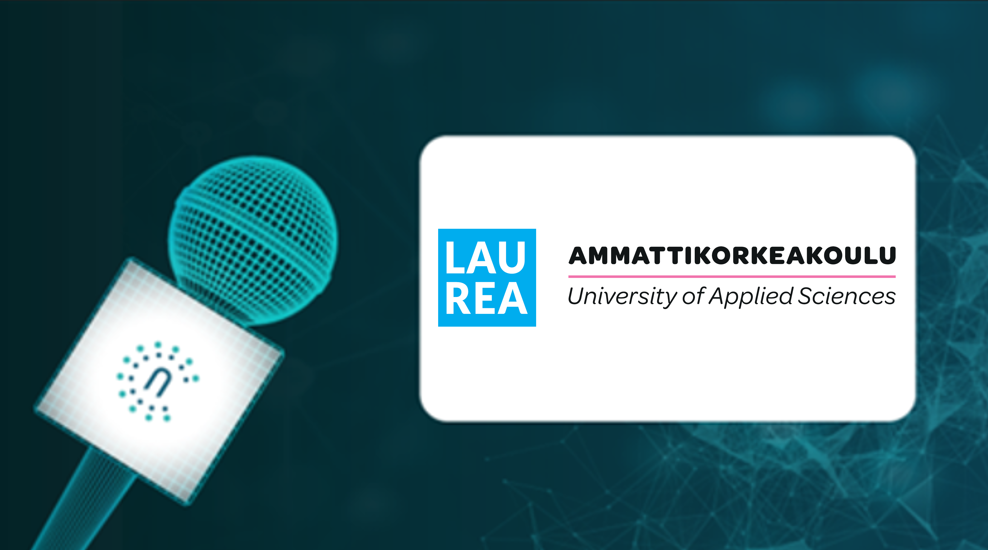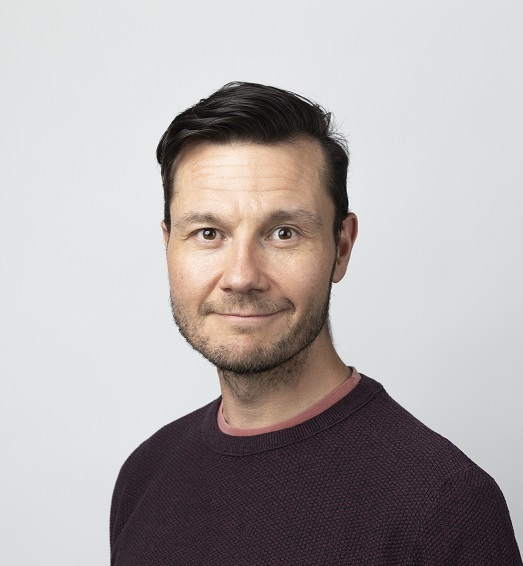
09 Aug Interview with Laurea University of Applied Sciences
LAUREA are a partner in the NOTIONES project. What is your role within this network of police and intelligence agencies across Europe?
LAUREA University of Applied Sciences (UAS) is the leading civilian security education provider in Finland. Within NOTIONES, LAUREA leverages its expertise to contribute to the project’s research and development efforts, disseminating findings, fostering ethical and sustainable solutions, and engaging with a broad network of partners from both public and private sectors. This involvement ensures that LAUREA aids in the development and implementation of innovative security technologies, thereby enhancing the overall effectiveness and impact of the NOTIONES project across European network of police and intelligence agencies.
What activities of the NOTIONES project are you currently progressing?
Laurea UAS leads the WP7 Workshops and Conferences. WP7 involves organizing and coordinating five workshops dedicated to the internal network of NOTIONES. These workshops aim to finalize and review the activities of various working groups, periodically presenting results and findings to the consortium partners and selected external stakeholders. Additionally, Laurea is involved in the arrangement and execution of five conferences intended to expand the network of practitioners. These conferences aim to disseminate the results and findings of NOTIONES, enhancing interaction with a broader range of external stakeholders, including representatives from industry and academia. Furthermore, Laurea plays a critical role in facilitating the interaction among practitioners, academia, and industry, which is essential for the project’s success. The activities collectively aim to ensure the commitment and involvement of new organizations, expand the network, and promote the uptake and industrialization of innovative security technologies.
How will the engagement of LAUREA in the NOTIONES project support your business?
Laurea’s engagement in the NOTIONES project offers substantial benefits. By participating, Laurea strengthens its regional and international cooperation network, which is pivotal for both current and future research collaborations. This engagement enhances Laurea’s educational offerings, particularly through the integration of cutting-edge technology and innovative practices monitored through the project. These advancements are incorporated into higher education programs and in-service training sessions, thereby improving the skill sets of students and professionals alike. Additionally, the knowledge and insights gained from NOTIONES are utilized to develop further research and innovation projects, enhancing Laurea’s reputation and expertise in the field of security. This involvement also supports Laurea’s mission to provide ethically and socially sustainable solutions, ensuring that their approaches respect fundamental human rights. Ultimately, Laurea’s participation in NOTIONES not only contributes to the success of the project but also significantly boosts its own research excellence, educational quality, and international standing.
What are the benefits to LAUREA of participating in European security research and innovation projects?
Participating in European security research and innovation projects offers numerous benefits to Laurea University of Applied Sciences. These projects enhance Laurea’s international cooperation network, involving over 180 institutions worldwide, crucial for current and future research collaborations and knowledge exchange.
Such involvement integrates cutting-edge technologies and innovative practices into Laurea’s educational programs, improving the skills of students and professionals while keeping the curriculum up-to-date with industry standards. Programs in cybersecurity and risk management, for example, are enriched with practical insights from ongoing research.
Furthermore, Laurea’s participation aligns with its mission to provide ethically and socially sustainable solutions, promoting new service development and enhancing existing ones with a focus on the end-user experience and societal impact.
Overall, these projects enhance Laurea’s reputation and expertise in security, support professional development for staff and students, and align with strategic goals for fostering sustainable social development.
Are you engaging in other European research and innovation projects?
Laurea UAS is one of the biggest receivers of Horizon funding in Finland and is involved in several significant European research and innovation projects and networks. The collaboration includes education, research, development, and innovation activities aimed at addressing urban sustainability issues.
Additionally, Laurea participates in multiple projects that focuses on security, safety, and social responsibility, particularly related to societal resilience and civil protection. These projects include CYCLOPES, EU-HYBNET, EU-CIP, CyberSecPro, DYNAMO, MANOLO, and ARCSAR. The projects leverage Laurea’s expertise in security management and international cooperation to develop innovative solutions for civil security challenges.
Laurea’s Coherent Security Research Programme aims to provide both national and international research and innovation solutions supporting the implementation of civil security. Other programs include those focusing on sustainable and versatile social and health care, and service business and circular economy, highlighting Laurea’s broad involvement in enhancing social and economic resilience through innovative research.
How does LAUREA assess which research and innovation projects to progress?
Laurea UAS is an agile player to engage to RDI-projects. Laurea’s strength is the multidisciplinary approach that takes place between its three research programs Coherent Security,
Sustainable and Versatile Social and Health Care, and Service Business and Circular Economy.
The primary criteria includes 3 key areas, the first being Strategic Alignment: Projects must align with Laurea’s strategic research programmes. This alignment ensures that projects contribute to the long-term goals of the university and address critical societal needs. The second is Impact and Innovation Potential: Projects are evaluated based on their potential to create significant societal impact and innovation. Laurea prioritizes projects that offer practical solutions to real-world problems and promote sustainable development. And the third key area is Integration into Curricula and Teaching: Projects must enhance learning by being integrated into curricula, allowing students to participate in real-world research and innovation activities. They should contribute to developing students’ skills and knowledge, preparing them for professional challenges.
What advice would you give to police, intelligence and security agencies seeking to engage in European security research and innovation?
Partner with Academia, engage with universities and research institutions for access to cutting-edge research and academic expertise. The academics also bring versatile experience with them. Also, form Multi-Disciplinary Teams and include experts from various fields such as technology, social sciences, and law to address complex security challenges comprehensively. Always, ensure that you have experts in SSH (social sciences and humanities) in a team. And also engage stakeholders, involve public and private sector partners, as well as civil society, to ensure holistic solutions and public trust.
What are the key lessons LAUREA have learned in delivering security research and innovation projects?
We have identified three key themes for lessons we have learned. The first is Strategic Alignment and Relevance, including mission-driven projects to ensure projects align with institutional missions and address real-world security challenges, as well as impact-oriented research which focuses on delivering tangible benefits to society and stakeholders.
Second there is Integration with Education, incorporating into curricula, embedding research projects into academic programs to enhance student learning and skill development and also student involvement, actively involve students in research activities to prepare them for future professional roles in security sectors.
And third, sustainable and feasible projects that support resource planning, developing clear plans for resource allocation, including funding, personnel, and infrastructure, and adapting a long-term vision: to ensure projects have sustainable business models and potential for long-term impact beyond initial funding.
Profile:

Bio:
Mr. Pasi Hario is the RDI Team Lead at Laurea University of Applied Sciences, where he spearheads the ResLab research team that focuses on societal resilience through futures, systems, and design thinking. With a multidisciplinary background in social sciences, humanities, and service design, Pasi has extensive experience in research, development, and innovation at both national and international levels. His career includes roles as an RDI Project Manager and as a Military Expert in multiple missions. Pasi’s work focuses on integrating research with teaching, fostering participatory governance, and enhancing human security. He holds master’s degrees in Futures Studies, Service Design, and History. He has contributed to numerous projects and academic publications. His ability to navigate complex issues and develop innovative solutions makes him a valuable leader in the field of security research and innovation.
Contact details:
Mr. Pasi HARIO
Lead ResLab Research Group
Laurea University of Applied Sciences




